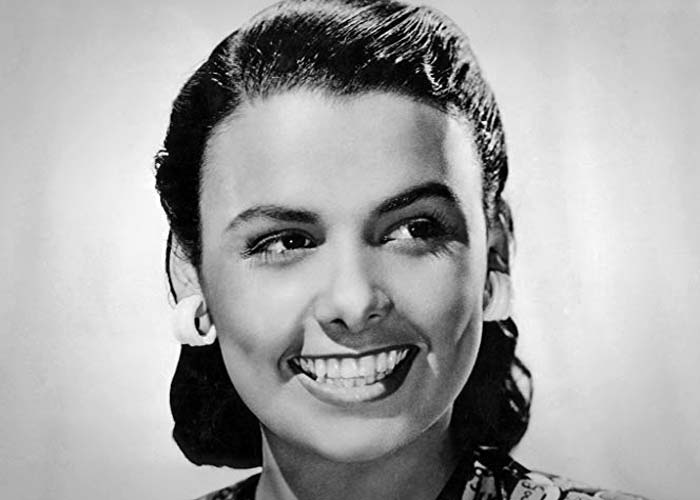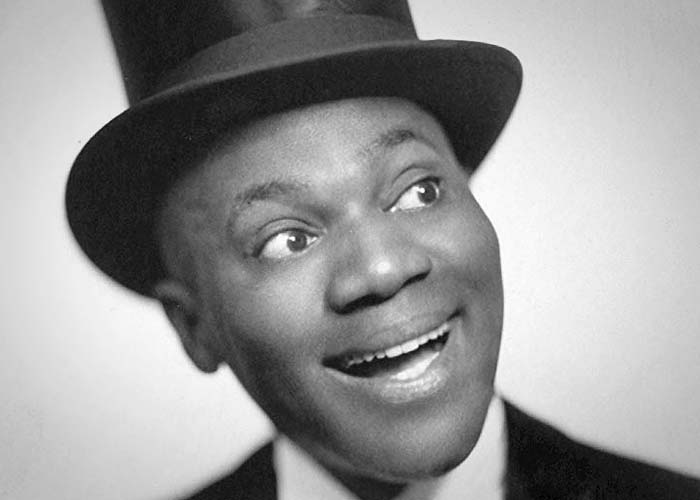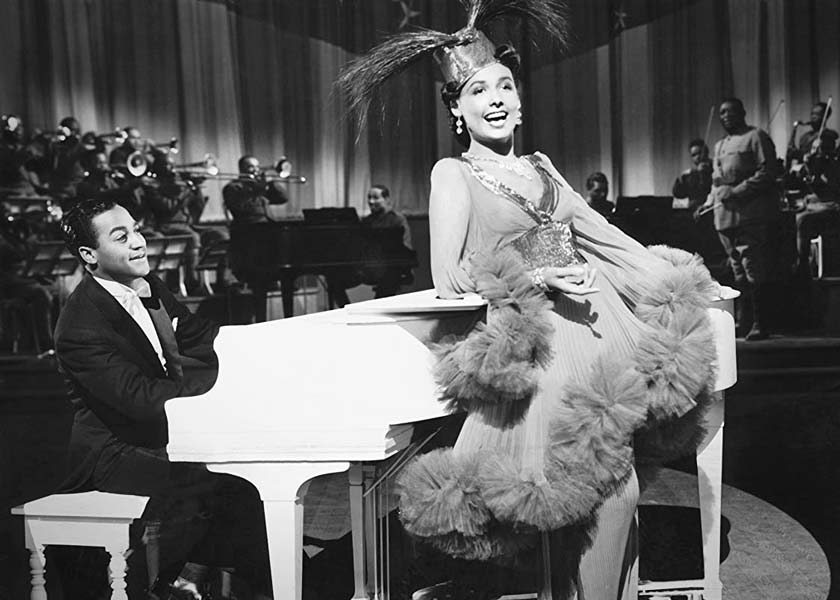Synopsis
Bill Williamson (Robinson) reminiscences about his career. Returning from France after World War I, Bill and Gabe Tucker (Wilson) live it up in New York. In a nightclub, Bill dances with Selina Rogers (Horne), the sister of a buddy who died in the war. Chick Bailey (Emmett Wallace), Selina’s manager, becomes jealous of her attention to Bill.
Bill moves to Memphis, Tennessee, to work in a cafe on Beale Street. Appearing in Memphis, Selina and Chick drop by and offer jobs to the cafe's entertainers. Chick gives Bill a small position as a tom-tom player. Frustrated, Bill jumps on the tom-tom and tap dances across the drums while Chick is singing center stage. Bill is fired.
Back in the present, Bill, putting on his own show, is running low on money. Gabe helps him get the money, and the show proceeds. Bill marries Selina who leaves him to perform in Paris; Selena quickly becomes a star. Bill lives alone in their home. One night, Cab Calloway takes him to party where Selina is performing. Bill and Selena, reunited, appear together, and all ends happily.
Discussion
Stormy Weather is an all-black musical showcasing many African-American entertainers, in particular Bill Robinson and Lena Horne. A slight story carries the film between the musical numbers. Horne’s beauty and singing are presented stylishly. Robinson was nearly forty years older than Horne, but he was one of the best known and most admired black performers of his time; his presence adds stature to the film.
American movies made before World War II did not address the subject of racial
discrimination, and racist stereotypes pervaded Hollywood films. Most
African-American actors had small roles as maids, porters, or shoeshine boys. Some
actors, such as Mantan Moreland or Willie Best, frequently had fairly prominent
roles in low-budget programmers; their characters, however, although willing
supporters of their white friends or employers, remained stereotyped as inherently
subservient and as comically
ignorant and cowardly. Only in the few
mainstream films made with all-black actors could African-Americans be portrayed
as real people, such as King Vidor's
Hallelujah (1929).
Films with all-black casts were limited in their theatrical distribution. In northern states, black films had their highest patronage in cities, with much lower attendance in rural areas. In southern states, all-black films could be shown only theaters patronized by black audiences. This limited, discriminatory distribution suppressed the earning potential of black films. For example, Green Pastures (1935), adapted from a successful Broadway play and a prestigious picture for Warner Bros., lost money. Until racist attitudes were challenged by the civil rights movement in the 1960s, Hollywood studios had no incentives (and no stomach) to go against the prevailing social arrangements.

Lena Horne's first film was the low-budget black musical
Duke Is Tops (1938). She was appearing in a Los Angeles nightclub
when she was signed to a seven-year contract by MGM, the second black performer
given a contract (the first had been Nina Mae McKinney in 1929). Horne had one
song in Panama Hattie (1942), her first MGM film. Subsequently, she
sang one or two songs in a succession of all-star musicals. In
Till the Clouds Roll By (1946), a biographic film about composer
Jerome Kern, she appears as Julie in a scene from Show Boat. Horne
wanted the role of Julie in the 1951 film version of Show Boat, but
the part went to Ava Gardner in browned
skin. She starred in two all-black
films for MGM, Cabin in the Sky (1943) and
Stormy Weather. After her contract ended Horne did not have another
film role until Death of a Gunfighter (1969), by which time racial
barriers had weakened, and Horne plays the love interest of white actor Richard
Widmark. A beauty with a fine figure, her looks complemented her silky and
expressive singing. The song Stormy Weather,
composed by Harold Arlen and
Ted Koehler in 1933, was her signature piece.

BojanglesRobinson
Bill Bojangles
Robinson, who devised his own dance routines, appeared in
vaudeville and musical theater from childhood. On Broadway he starred in the
all-black musicals Blackbirds of 1928 (1928),
Brown Buddies (1930), and The Hot Mikado (1939). He has
a solo dance in Dixiana (1930), his second film appearance, and a
starring role in the black-made film Harlem is Heaven (1932). He
teaches Will Rogers to tap dance in In Old Kentucky (1935), and
dances with child star Shirley Temple in four films:
Little Colonel (1935), Littlest Rebel (1935),
Rebecca of Sunnybrook Farm (1938), and
Just Around the Corner (1938). Robinson has one of his few leading
roles in Stormy Weather, his final film appearance.
Comedian Dooley Wilson had appeared in seven films, mostly in small roles, prior
to his role in Stormy Weather, and gained immortality for his role as
Sam in Casablanca (1942). Emmett Babe
Wallace, singer and
songwriter, appeared in musical theater and cabaret across the US and Europe. He
made a handful of feature films, of which Stormy Weather is the best
known.
TCM Film Festival, 2014
Stormy Weather was shown as part of the Essentials
theme at
the TCM Classic Film Festival in 2014. The guest speakers were Donald Bogle, film
historian and author of books about African Americans in film, and Bruce
Goldstein, director of repertory programming for Film Forum theater in New York
City. Bogle and Goldstein described Stormy Weather as a unique film
since Hollywood had produced few films with black casts when it was released.
Black soldiers fought in World War II but lacked rights at home. By the end of the
war, Hollywood studios had made five African American talkies:
Hallelujah and Hearts in Dixie in 1929,
Green Pastures in 1935, and Stormy Weather and
Cabin in the Sky in 1943. These films abandoned black stereotypes and
made black characters real people.
Lena Horne was a dream girl at MGM, where she was glamorized and publicized. She
was disappointed that her singing was not integrated into the storyline of
Stormy Weather (with the exception of the title song). She was also
unhappy with her leading man; Bojangles
was famous, but, in his
mid-sixties, was too old for her. She also did not care for director Andrew L.
Stone, whom she described as cold.
Stone nonetheless took pride in working with African American performers; he let the acts do their thing, including Katherine Dunham and Her Troupe, Cab Calloway and His Cotton Club Orchestra, Fats Waller, the Nicholas Brothers (who bring the film to a fever pitch with their athletic and entertaining dancing), and uncredited performers including Illinois Jacquet and Jo Jones.
Further Reading

